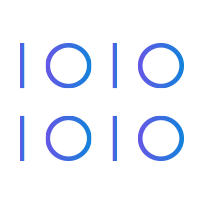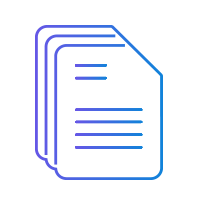4 dictionaries



FIDJI ACT
The FIDJI ACT dictionary references standardized impact reduction action points grouped by use case. It then lists down the data points relevant to progress monitoring when implementing those action points on real estate assets.

What is an impact reduction action point?
Three types of actions are identified. “Quick-wins” are actions quick and/or easy to implement. Their cost requirements are low and the resulting impact is immediate. “Opportunities” can be considered as and when the situation at hand allows. “Voluntary” action points are exemplary actions requiring a significant initial investment, with a view to reaching a high impact on the mid- to long-term, combined with value creation for the real estate asset. Voluntary actions are discretionary ones; they are predicated on a value-creation asset management strategy.
Standard reference lists
The first use case for FIDJI ACT is one willing to improve the energy performance and to lower the carbon emission level of one’s real estate assets. It starts with picking the appropriate impact action points. Then, relevant data points needed to measure actual impact are provided in FIDJI ACT. This standardized combination of action points and their corresponding data points is key to streamlining data collection and to operationalizing the financial and usage monitoring improvements reached at asset level. It is a key component to a continuous digital value chain running along all real estate stakeholders.
New use cases will be added to the FIDJI ACT dictionary in the future.
A sustainable and collaborative initiative
The FIDJI ACT workgroup is leveraging state of the art knowledge and expertise made available by public bodies and private companies at the European level : Ministries, Environmental Agency (ADEME, etc.), Observatoire de l’Immobilier Durable (OID), EU, etc.

FIDJI API
FIDJI Institute’s purpose is to create collaborative and sustainable digital work practices for the common good of the real estate industry. It has enabled businesses in the real estate ecosystem to streamline the exchange of information between them.
API dictionary
After having built the data dictionary (FIDJI DATA) and the documentary dictionary (FIDJI DOC), widely used and regularly updated for the last 16 years, today it seems necessary to create an API dictionary (FIDJI API).
Digital innovation
This new API dictionary is an innovation that is part of the digital continuity of the FIDJI Institute and that resurrects the spirit of the pioneers who had already gathered 16 years ago (2007) to create the first dictionary (FIDJI DATA). At the time, they were about fifty professionals, sometimes competitors, driven by a common will and a collaborative intelligence, working for three years to produce the first tool of digital convergence. All together, they have adopted their “baby” and were able to benefit from this standardized language to exchange reliable information.
Working Groups
In the 21st century, our real estate industry is in an accelerating ecological and digital evolution. Most information systems are already connected to platforms/Proptechs that implement numerous APIs. Now, implementing APIs is initially driving a dictionary of relevant questions and answers.
All members are invited to join us for free in the workshops. To participate it is however important to register in advance.
FIDJI DATA
The FIDJI DATA dictionary is characterized by numerous data exchange flows that link the real estate industry to each other and to their ecosystem. All data flows included in FIDJI DATA correspond to operational use cases within the real estate industry.


What is a flow?
A flow is an agnostic data transport, which formalizes “the container” of what it transports, which is “the content”. The container is a normalized “field“. The content is a “data” deemed reliable.
A field is categorized with three attributes
whose uniqueness is engraved in the FIDJI dictionary:
– a name = the field is named precisely
– a content type = what the field must contain as a type of information
– a technical format = the format (date, numbers, text, etc…) of the typical content of the field.
Some fields are correlated to a reliability index
which is a percentage qualifying the uncertainty of the content. This qualification does not concern the container but the content.
In the same way, some fields are correlated to a list of predefined and normalized values in the shared dictionary.
Information systems, platforms or software using FIDJI DATA – and therefore transmitters/receivers of FIDJI standardized flows – are subject to a labeling, in collaboration with EY, to check the conformity to the model and ensure the guarantee of a good functioning to their users.

FIDJI DOCS
Following numerous requests, FIDJI Institute has produced a dictionary of “root” documents to allow the inventory of essential real estate typology and documents to be operational quickly on a real estate asset, whatever its nature.
The document classification plan
FIDJI DOC offers a three-level tree structure, which is intended to be a national and European standard, already used by several actors working internationally. It facilitates the assimilation of large volumes of documents.
Established by professionals
This reference document filling plan is the product of a working group that brought together real estate professionals (Investors, Notaries, Experts, Property Managers) and publishers of EDM/EDM (Electronic Management of information and company Documents).
Optimize electronic archiving
The FIDJI DOC tree structure is regularly used as a basis for optimizing electronic archiving linked to real estate assets, especially when a new documentary management tool is implemented
Rapid implementation
The implementation is fast, and the content has already been validated collaboratively by the industry. Of course, afterwards, this database can be enriched internally.
Re-engineering
FIDJI DOC is also used in case of re-engineering of the existing documentary classification tool, when the latter has become too labyrinthine, and it has become impossible to reach the documents in a reasonable time..
Data exchange flow
It is possible to include documents in data exchange flows or to carry only their URL and index key.
Rights of use
FIDJI Institute has adopted the Creative Commons licenses for the distribution of its dictionaries. The Creative Commons family of licenses is an internationally recognized standard for open content, which provides a license that clearly states the conditions for reuse of FIDJI Institute’s tools.
The Creative Commons free public license for the FIDJI API includes the following two conditions:
- Authorship: the FIDJI API offers the possibility to reproduce, distribute and communicate its creation, and derived works, but only if they expressly attribute authorship to it. This condition is common to all Creative Commons licenses.
- No modification: the FIDJI API offers the possibility to reproduce, distribute and communicate its creation in its original form. The agreement of the FIDJI API is required for any translation, alteration, transformation, or reuse in another work.
Thus, publishers who use, or wish to use, FIDJI dictionaries can integrate them into the software they sell by simply asking the FIDJI API. But they cannot appropriate the authorship, nor market the dictionaries as such because they are not the authors.
The wish of the pioneers and institutional investors behind the creation of FIDJI Institute has always been to produce the dictionaries for the common good of our industry. It is a collaborative and sustainable work, made available to all real estate businesses, large and small.
The governing bodies of the FIDJI Institute, advised by EY Société d’Avocats, have chosen Creative Commons licenses because they are specifically designed to facilitate use and understanding by authors and users. Their standardized terminology and technical implementation make them universal.
https://creativecommons.org/licenses/by-nd/2.0/deed.fr
https://creativecommons.org/licenses/by-nd/2.0/legalcode
In summary, the only obligation for consumers of Fiji tools is to give credit to Fiji Institute.




